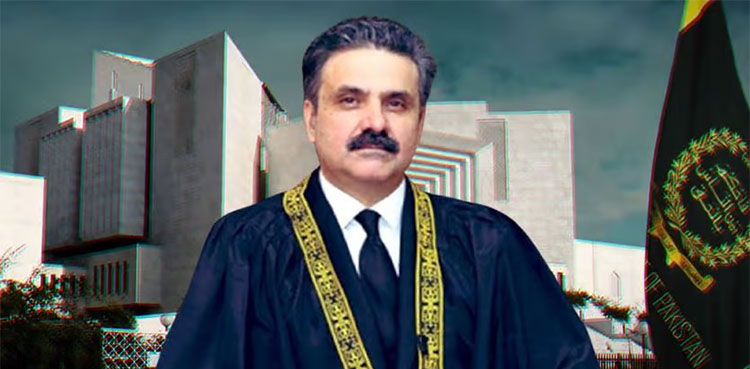In the realm of Pakistan’s judiciary, a remarkable shift is unfolding—one that challenges traditions of seniority and elevates merit and regional representation. The appointment of Justice Yahya Afridi as the next Chief Justice of Pakistan (CJP) marks a pivotal moment in the nation’s legal history. His rise to this esteemed position, alongside the stories of his fellow justices, paints a picture of a judiciary that is increasingly inclusive and focused on fairness.
Justice Yahya Afridi, along with Justices Muneeb Akhtar and Mansoor Ali Shah, represents a new generation of legal minds in Pakistan. All three share distinguished backgrounds, having been educated at the prestigious Aitchison College. Both Muneeb and Yahya held the position of Head Boy in their respective years, while Mansoor served as a Prefect. Their shared experiences in sports, academics, and later the legal profession—Muneeb and Mansoor as tennis players and Yahya and Mansoor as partners in the same law firm—highlight the camaraderie and shared excellence that these men bring to the judiciary. Each of these justices has pursued education at world-renowned institutions, with Yahya and Mansoor attending Cambridge, and Muneeb completing his studies at Princeton.
Yet, despite these similarities, their paths to the Chief Justice role have diverged due to a key constitutional amendment. Before the 26th Amendment, which introduced merit-based appointments, these justices were expected to take on the position of CJP in a predetermined order. Yahya Afridi, originally senior to his colleagues, had been passed over for elevation to the Supreme Court by former Chief Justice Saqib Nisar. However, Afridi’s recent appointment as CJP is a testament to how the judiciary is changing. His elevation signifies the abandonment of rigid seniority in favour of recognising merit and potential.
Justice Yahya Afridi’s appointment also carries significant weight for the region he hails from, Khyber Pakhtunkhwa (KP), and more specifically, the former Federally Administered Tribal Areas (FATA). His elevation sends a powerful message to those from historically marginalised areas: the highest echelons of power and influence in Pakistan are
open to all, regardless of region. Much like his predecessor, Justice Qazi Faez Isa, who hailed from Balochistan, Justice Afridi’s rise exemplifies the strength of Pakistan’s diverse talent pool. Both Isa and Afridi embody a judiciary that is committed to fairness and regional inclusion, uplifting voices from areas that have long been overlooked in the corridors of power.
Afridi’s tenure is likely to further enhance the credibility of Pakistan’s judiciary. Known for his impartiality and unwavering dedication to the law, he stands as a neutral figure, one who prioritises justice over political or personal interests. As the Chief Justice, Afridi will undoubtedly face high-profile cases, potentially even involving figures like Imran Khan. His reputation as a law-driven, unbiased judge will serve as a safeguard against criticism that might otherwise accuse the judiciary of being politically influenced. In this sense, Afridi’s leadership offers the government and establishment a shield, allowing them to pursue their objectives while maintaining the public’s trust in judicial neutrality.
Justice Afridi’s story, much like that of Justice Isa, is a powerful reflection of how Pakistan’s judiciary is evolving. The focus on merit-based appointments and the inclusion of voices from underrepresented regions bolster the integrity of the legal system. It is a judiciary that no longer solely favours those from central or dominant provinces, but instead recognises the talent and potential that exists across the entire nation.
This shift not only enhances the public image of the government and establishment but also strengthens the judiciary’s role as an independent and credible institution. By prioritising regional representation and legal fairness, the appointments of Justice Afridi and Justice Isa project a more inclusive national narrative—one in which the highest ranks of the judiciary are open to those from all corners of Pakistan.
As Chief Justice Yahya Afridi takes the helm, the judiciary, and indeed the nation, will benefit from his leadership. His ascent marks a turning point in Pakistan’s legal history—one that brings hope for a more just, inclusive, and merit-driven future.



Leave a Comment